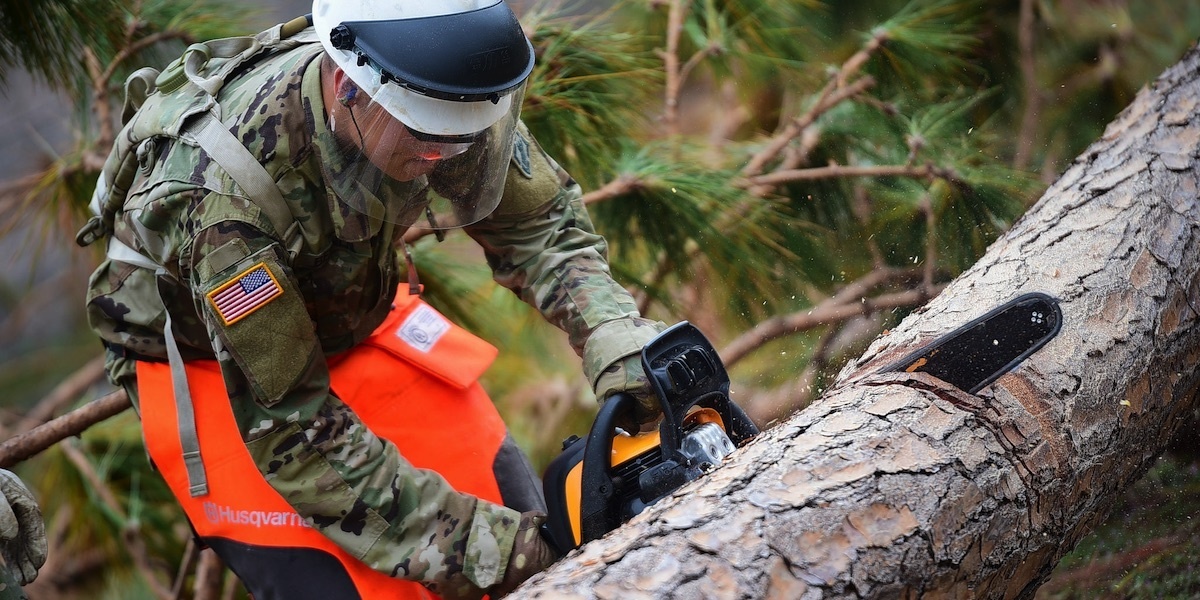

U.S. Army member helps clear debris from Tyndall Air Force Base following Hurricane Michael. U.S. Army
The Pentagon released a Congressionally mandated
report (pdf) that warns flooding, drought and wildfires and other effects of climate change puts U.S. military bases at risk.
The 22-page analysis states plainly: “The effects of a changing climate are a national security issue with potential impacts to Department of Defense (DoD or the Department) missions, operational plans, and installations.”
The DoD said it is working with other nations “to understand and plan for future potential mission impacts,” adding that this is a “global issue.”
The report, titled Report on Effects of a Changing Climate to the Department of Defense, reveals that two-thirds of the 79 mission-essential military installations that were reviewed are vulnerable to current or future recurrent flooding, more than half are vulnerable to current or future drought, and about half are exposed to wildfires. Six sites are also facing desertification and one is vulnerable to thawing permafrost.
Climate Impacts Nearly Half of U.S. Military Bases https://t.co/9BD9keUWAV @wattsupwiththat @climatecouncil @WRIClimate
— EcoWatch (@EcoWatch) February 3, 2018
Bizarrely, as
Mother Jones‘ Dan Spinelli reported, Marine Corps bases were left out of the report entirely, even though sites such as Camp Lejeune in North Carolina were devastated by Hurricane Florence in September.
Despite the severity of the warning, it’s not clear how much of a ripple this document will actually make in Washington. First of all, President Trump thinks global warming is a “hoax” and rejected his own government’s report in November that warned climate change could kill thousands of Americans each year and slash the GDP by more than 10 percent by 2100. Trump’s national security strategy also reversed an Obama-era declaration that placed climate change as a major threat facing the nation.
Secondly, the new report was delivered to Senate Armed Services Committee Chair Jim Inhofe (R-OK), who infamously threw a snowball across the Senate floor to disprove global warming.
House Armed Services Committee Chairman Adam Smith (D-Wash.) slammed the Pentagon’s report, calling it half-baked” and “inadequate” for not mentioning any specifics on how the military will respond to climate threats.
“While this climate report acknowledges that nearly all the military installations it studied are vulnerable to major climate change impacts, and provides numerous installation-level examples of those impacts, it fails to even minimally discuss a mitigation plan to address the vulnerabilities,” Smith said in a joint
press release with Rep. Jim Langevin (D-R.I.).
The half-baked DOD report on #climatechange released this week is inadequate and demonstrates a continued unwillingness to seriously recognize and address the threat that climate change poses to our national security.
My statement w/ @JimLangevin https://t.co/fs7JZz3osL pic.twitter.com/sCO0eRDNTn
— Rep. Adam Smith (@RepAdamSmith) January 18, 2019

 233k
233k  41k
41k  Subscribe
Subscribe 